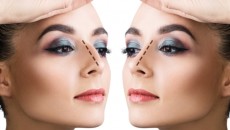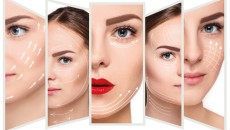Pigmented Lesions

Freckles, Sun Spots, Age Spots and BirthmarksAlmost everyone has a pigmented lesion of some type. These areas of the skin contain especially high concentrations of melanin and are typically caused by an excess of pigment commonly due to sun exposure, aging or congenital factors. Pigmented lesions vary widely in size, shape and depth. Some are no bigger than a fingertip or even a pinhead, while others may be as large as a hand and occur in such conspicuous places as the face, neck or arms. They can be either raised or flat and are usually a cosmetic rather than a medical concern. However, certain moles or “sun spots” can be precancerous; removing these lesions is medically necessary.
Lumenis covers the entire cutaneous landscape with its time-proven laser and Intense Pulsed Light solutions for use in the physician`s office. Its versatile and upgradeable Lumenis One and IPL Quantum product lines offer comprehensive and effective treatment for the wide range of pigmented lesions and cosmetic flaws.
The Broad Spectrum of IPLThe broad spectrum of IPL affords the physician an unrivaled menu of capabilities and the flexibility to switch easily among treatment modalities
Effective treatment of both dark and light skin types, leaving the area smooth and evenly colored
Increased treatment services to a greater number of patients in less time per patient when compared with other treatment approaches
Pigmentation Treatment
For millennia people have adorned, decorated and disguised their skin. The reasons are varied – to enhance appearance, as a sign of rank in society, for ceremonial and religious purposes, or to conceal part or all of the face.
Pigment changes, especially dark pigmentation of parts of the face is a common problem in many people and fortunately most of these pigmented spots can be reduced or removed by a wide array of treatments at our disposal.
Common pigmentation disorders in Asia include solar lentigines and freckles, melasma and dyschromia of photoaging.
Depending on the type of pigmentation, you may be require application of creams, Laser treatment, Iontophoresis, or a combination of several of these methods to achieve a full effect.


FAQ
What is Melasma?
Melasma is the presence of brown or grayish brown patches, usually on both sides of the face, especially on the cheeks, upper lip, nose, forehead or chin. This is caused by an excessive production of melanin, the pigment that causes skin to tan. Melasma can be mild, moderate or severe depending on how much of your face is affected and how intense the pigmentation appears.
Who gets Melasma and why?
Melasma is a common skin condition that occurs predominantly in women. Men rarely develop melasma. Although anyone can have melasma, it is more common in people with light brown skin. Experts believe the pigmentation is caused by normal hormonal changes that occur when a woman begins taking birth control pills or hormone replacement therapy or during the second or third trimester of pregnancy. Melasma is sometimes called the “mask of pregnancy” because of its visual appearance during pregnancy. Sun exposure is also a triggering factor.
What treatments are available for Melasma?
Fortunately, you don` t have to live with melasma forever. Your doctor will be able to help you chose the best treatment combination. GALDERMA has recently come up a new prescription treatment that can lighten moderate to severe melasma quickly and effectively. This treatment combines 3 active ingredients in an easy-to-use cream that is applied only once a day.










